Inspiration
MANASSEH’S FOLDER: Comparing Anas and Manasseh
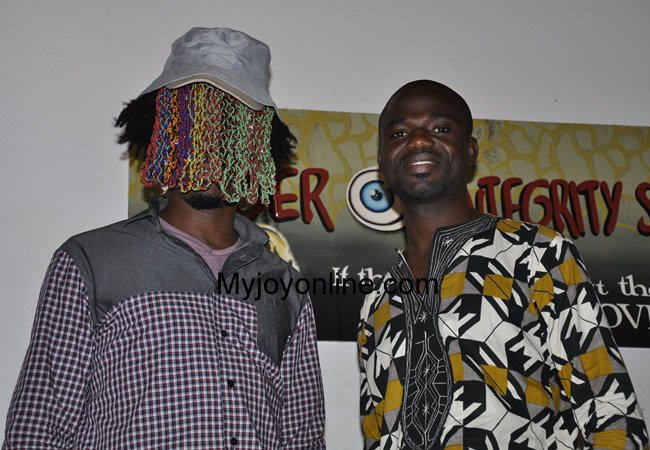
Manasseh Azure Awuni and Anas Aremeyaw Anas
Many years ago, when my “Kofi Manu” was about the size of my little finger and I was not yet qualified to shower in the bathroom, two musicians ruled the entertainment industry in Ghana. They were Daddy Lumba and Nana Acheampong.
The rivalry and controversy surrounding them was so pronounced that at that tender age, the tiny little boy growing up in Kete-Krachi Lakeside had taken sides even before his family procured its first major asset, a six-battery tape player.
I was a great fan of Nana Acheampong for two reasons. I loved his music. Today when I hear his popular “Anka εbε yε dεn na ayε wo ya” track, which we thought was a direct jibe at Lumba, I still appreciate his enormous talent and do not regret ever being his ardent fan. The second reason I rooted for Nana Acheampong was because Lumba was too profane, or so I thought.
Daddy Lumba also had diehard fans. “Even if Lumba coughs and it is recorded I will buy the cassette,” a fisherman once said. These were the days when ICT, which has taken pirating of music to this weird level, was practically absent. The rivalry and controversy surrounding the two kings of burger highlife music translated into a strong support base, which in turn affected their fortunes positively. This was despite the fact that other great musicians, including Kojo Antwi, were at the peak of their careers.
Many years later, when Ghana’s music industry is almost dead, another such fierce but needlessly ugly rivalry is raging between Ghana’s ‘King of Dancehall’ and the ‘Self-acclaimed King of Dancehall.’ Samini and Shatta Wale’s rivalry is noticeable to even those who pay no attention to happenings in the entertainment industry. Rivalry and controversy are not entirely bad in showbiz. If they are managed well, they project and solidify an artiste’s support base. In the case of Daddy Lumba and Nana Acheampong, the controversy was raging between their fans. They did not openly exchange foul words and brag like Samini and Shatta Wale do.
Comparing Shatta Wale to Samini is quite unfortunate and whoever started it has done Shatta Wale a lot of harm. Shatta Wale’s’s rise to fame or notoriety (depending on how one sees it) is mainly due to his association with Samini. That is the positive side. He could have kept quiet and enjoyed it. But he would not. And this is the destructive side.
Last year, I was told by someone close to him that his father had advised him to stop the public outbursts. Only last week, I overheard some media person in showbiz telling DJ Black how Shatta Wale refuses to leave the stage anytime he is told Samini would perform afterwards. I recently read in Graphic Showbiz that Shatta Wale is leading in the Vodafone Ghana Music Awards nomination, and if the comments attributed to him are anything to go by, then Shatta Wale can outclass Bukom Banku in any bragging competition.
It is very likely that Shatta Wale will win the topmost award this year, the VGMA Artiste of the Year. No one may remind him that the VGMA, which now celebrates mediocrity, has lost its significance except for being a money-making opportunity for Charter House Productions. We will not have ears for anything else if Shatta Wale wins. The Shatta Wale and Samini nonsense will surface again.
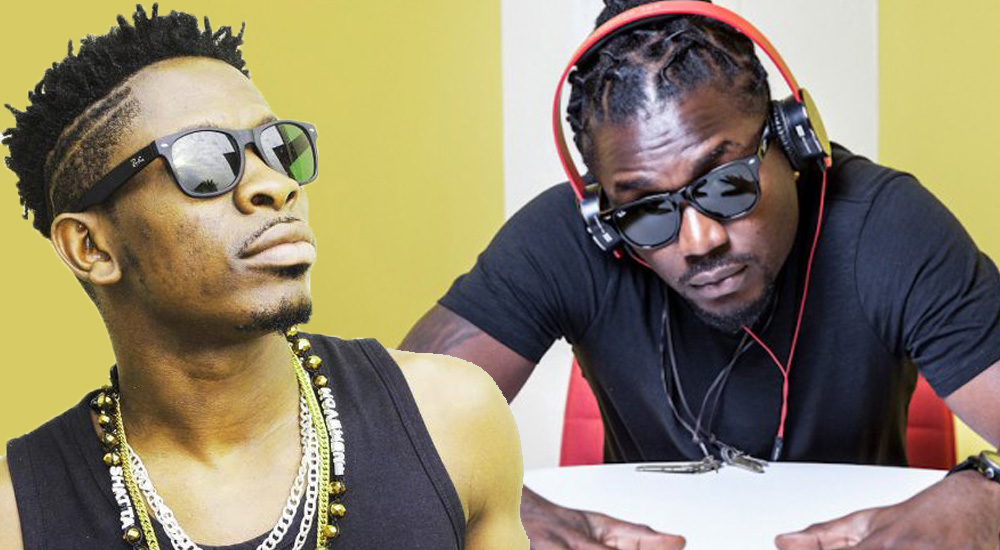
Shatta Wale and Samini
As a passive observer of this controversy and as someone who is being lured into such senseless competition, I understand the trap of destruction which society has set for Shatta Wale , and which he jumped into it with his head. Society is obsessed with comparison and unnecessary competition, and this is often dangerous for the characters involved. I have a similar experience.
In our generation, when investigative journalism is mentioned in Ghana, one name stands out. Anas Aremeyaw Anas has distinguished himself as a journalist of international repute and as things stand, he will go down in history as one of Ghana’s best journalists of all time. Back in the Ghana Institute of Journalism, we looked up to Anas and other great journalists such as Kwaku Sakyi-Addo, George Sydney Abugri and Komla Dumor.
Though I didn’t consider investigative journalism as my area of specialization, fate drew me into it. After a couple of successful investigations, society has started setting the trap they set for Shatta Wale. At the last Ghana Journalists Award ceremony, the MC for the night introduced me with a preamble: “In the past, if you were doing something wrong, you were told to watch out because Anas might be around. Now it is Manasseh…” A lady who works with Adom FM once introduced me to someone and added, “He is even more than Anas.”
How can I be more than Anas, who was adjudged Ghana’s investigative journalist of the year while I was still learning the double entry principles of Accounting in Krachi Senior High School? Only God knows how embarrassed I was. But it doesn’t end there. At lectures and seminars I give on journalism, I am often asked about my kind of investigative journalism and that of Anas. And the question is always asked in a leading manner and leaves no doubt about the answer that is expected. At the University of Ghana’s School of Communication Studies last year, a student started with a winding preamble.
“What is investigative journalism?” he started. “We know it is unethical to record someone without their knowledge. Your kind of investigative journalism is straight to the point. You don’t disguise yourself. You don’t record secretly. This is how news is supposed to be gathered… What do you say about the method used by Anas Aremeyaw Anas?” he ended.
“Did you watch Anas’ investigative story on the Osu Children’s home,” I asked him.
“Yes,” he said.
“Was it in the public interest that he got that story out?”
“Of course,” he nodded.
“If he had gone to the authorities of the home and told them that he had heard they were stealing donations and molesting the children and he had come to do a story about it, would he have got the story and evidence he put out?” I asked.
“No,” he answered.
“Then your question is answered,” I told him, feeling very happy that I had employed the tactics my Lord and Saviour Jesus Christ used to defeat the Pharisees.
In recent times, I have become addicted to Pastor Mensa Otabil’s sermons. Ten wisdom-laden sermons of Pastor Mensa Otabil (and I am yet to hear him preach a bad sermon) are more than a Master’s degree if the listener applies them. For this reason, I often search them on YouTube and one of the most intriguing ones for me is the one titled: Things that Destroy Us (Greed).
In that Sermon, Pastor Mensa Otabil talks about the dangers of needless competition and imitation.
“You cannot be the best over somebody else,” he says. “You can only be the best of yourself. The best thing you can be, is to be what God wants you to be.
“Use your skills. Use your abilities. Use your strength. Perfect yourself. But don’t do that with somebody as your target. That is greed. And it will destroy you.”
In that sermon, Pastor Mensa Otabil also teaches us that sometimes the people we so much want to beat are less endowed than we are. So after beating them, we have no other challenge to excel. What we need to do instead, he says, is identify the departments we are strong in and excel in them instead of chasing others.
“Can you imagine me saying that because [Bishop] Agyin Asare is doing crusades I too I want to do crusade?” he asks.
“So I start announcing: ‘Mensa Otabil Crusade! Bring the cripples. Bring the deaf. Bring the lepers. And when they come what am I going to do?’”
Many young and talented individuals mess up and do not live to fulfil the purpose of God for them because they set out to beat those who have made a mark in that field. But I think instead of using such giants as measuring rods of their success, the new entrants should consider them as mentors and learn from them. I have benefited and continue to benefit from this.
In the 2012 elections, I conducted a live interview during which the speaker went overboard. The interview was subsequently truncated on air. As soon as the interview ended, my phone rang and when I looked at the caller, it was Anas Aremeyaw Anas. He was not my editor, but he realised what had gone wrong and told me how to go about it next time. When the first of my GYEEDA investigation series aired last year, Anas Aremeyaw Anas called to congratulate me, told me the reactions to expect and how I should go about it. That was not all. He was prepared to help me in whatever way he could.
When I am conducting an investigation and I reach a deadlock, I call him. And he is always willing to help. Anas in turn invites me to critique his works before they come out. I have been doing this for the past three years and the latest was two weeks ago when he called me to see his latest investigation, which will start premiering at the National Theatre on April 9.
“In all, I have listed eight points,” he said after I told him my views on what could be subtracted or added to make “SOUL TAKERS” better. “Rahim, tomorrow we will meet and discuss them,” he told the producer and thanked me for my input. With this humility from a senior colleague, it will be unwise to let the needless comparisons get into my head and behave like Shatta Wale.
The boy from Bongo and the man from Bimbilla are not in any competition. They are doing the same thing with different approaches. Their purpose is the same. They are partners, not competitors. And that’s how it is supposed to be. The younger or new entrant has double advantages if they are humble. They will learn about how those already in the industry have excelled. They will also learn from their mistakes and improve on theirs. Seeing them as competitors and doing everything to outclass them can be destructive.
Life is not a race. Even if we see it as such, we should not forget that we have different starting points. Each one of us is unique. You may not be able to do exactly what others have done, but you may have your strengths. You may have your comparative advantage over them if you recognise your uniqueness.
The first time Anas gave me his email address, I was surprised. I remembered that email address very well. That email address had sent me a message after I published an article online. It was in October 2009 while I was still a student of the Ghana Institute of Journalism. I didn’t reply the message. Not only were the emails I received so many but I also didn’t think the “authentic” Anas Aremeyaw Anas of all people would find time to read and appreciate the writings of a journalism student with words such as fantastic. Who was I? But he was the one.
So what’s the essence of this long, boring tale? That’s what some readers often write in the comment box.
I will tell you if you have not got it yet. You’re unique. And I am also unique. In fact, I am the only Manasseh Azure Awuni in the whole world. If you see any other somewhere, look at him well and you will find a made-in-China label somewhere.
Each of us is endowed with capabilities customised for the fulfilment of God’s purpose in our lives. Let’s appreciate our uniqueness and work with it. It is good to set targets and do better than what others have achieved. But in doing so, remember that he who imitates the left-handed is bound to hurt himself. You can only be the best of yourself and not of someone else as Pastor Mensa Otabil admonishes.
My friendship with Anas has taught me that there’s so much to learn from pioneers. If for nothing at all, you will avoid their mistakes. Instead of going into the studio every two weeks to record what some of us see as noise, Shatta Wale could have been better if he took time to study Samini who is into the same musical genre as he. He may have become better than Samini.
Don’t shatter your dreams like Shatta Wale through needless competition. Do your best, and when it’s your time to shine, it will come gloriously and effortlessly. Life is not a race. Don’t dance yourself lame before the dancing competition begins.
Life, they say, is an exam. Many people fail because they copy others. What they don’t know is that everyone is given a different set of questions.
Don’t make that mistake.
This article was first published in April 2014

-
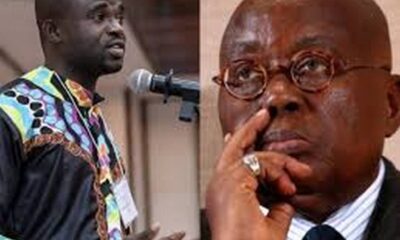
 Manasseh's Folder4 weeks ago
Manasseh's Folder4 weeks agoManasseh’s Praise and Criticism of Akufo-Addo’s Action on the SML Scandal
-

 Foreign News9 years ago
Foreign News9 years agoEvery Animal Meat Is Not Beef! See All Their Names
-
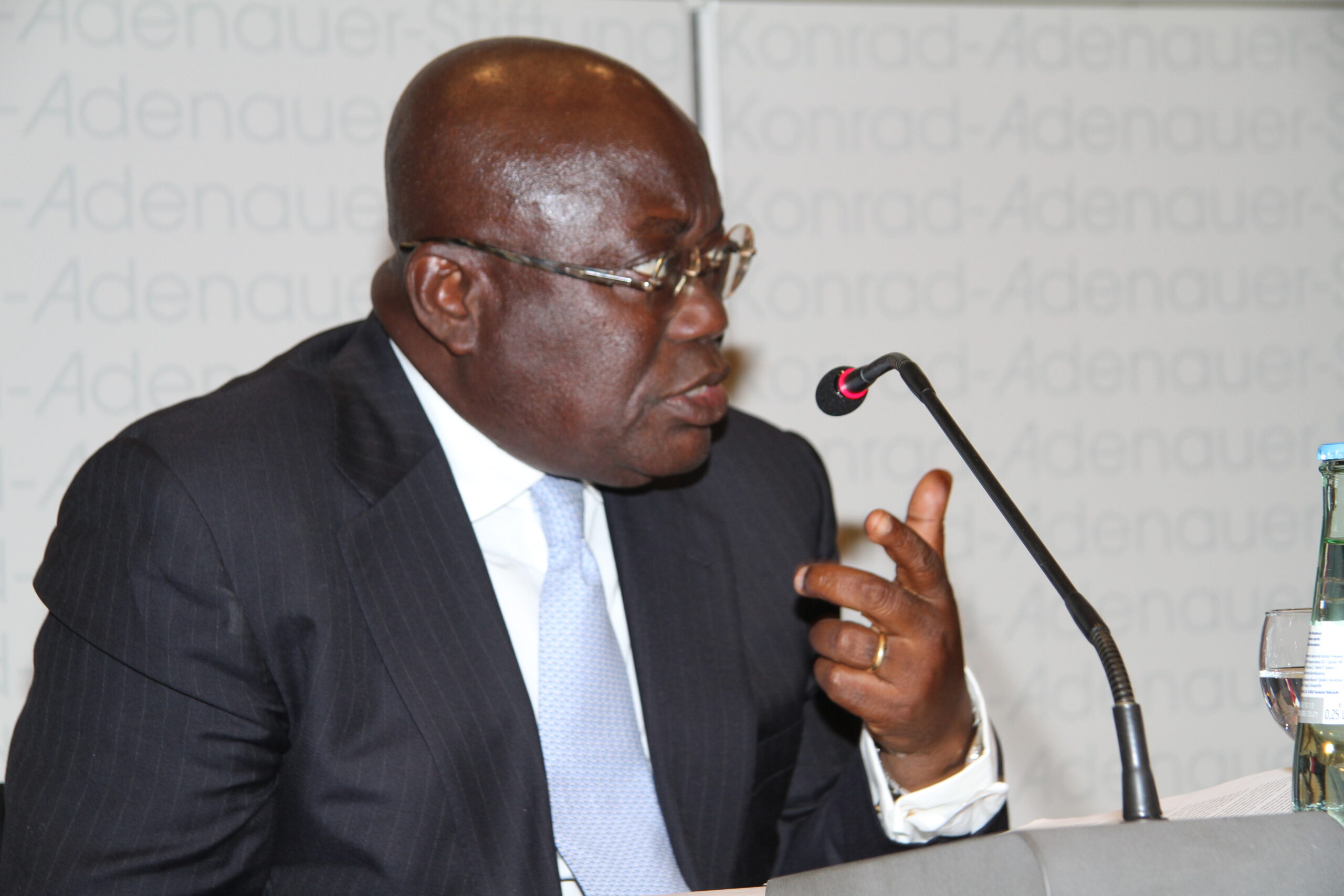
 Guest Writers8 years ago
Guest Writers8 years agoProf. Kwaku Asare writes: Nana Akufo-Addo has no law degree but…
-
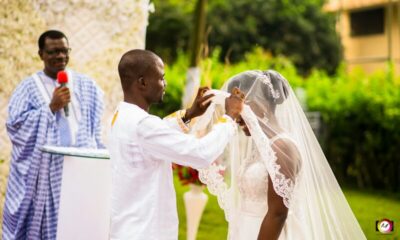
 Manasseh's Folder8 years ago
Manasseh's Folder8 years agoEXCLUSIVE PHOTOS: Manasseh Azure Awuni marries “Serwaa”
-
Manasseh's Folder7 years ago
MANASSEH’S FOLDER: Pastor Mensa Otabil’s “weird” thinking
-
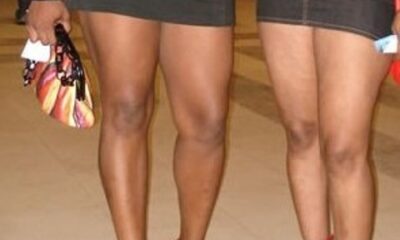
 Letter To My Future Wife9 years ago
Letter To My Future Wife9 years agoHow Legon Ladies Dress
-

 Foreign News9 years ago
Foreign News9 years ago“IMF and USA set to ruin Ghana” — Former British Ambassador Craig Murray writes
-
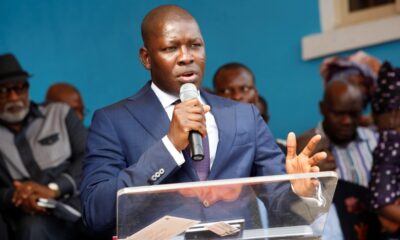
 Local News8 years ago
Local News8 years agoRoland Agambire drops GH¢1million suit against Manasseh Azure Awuni